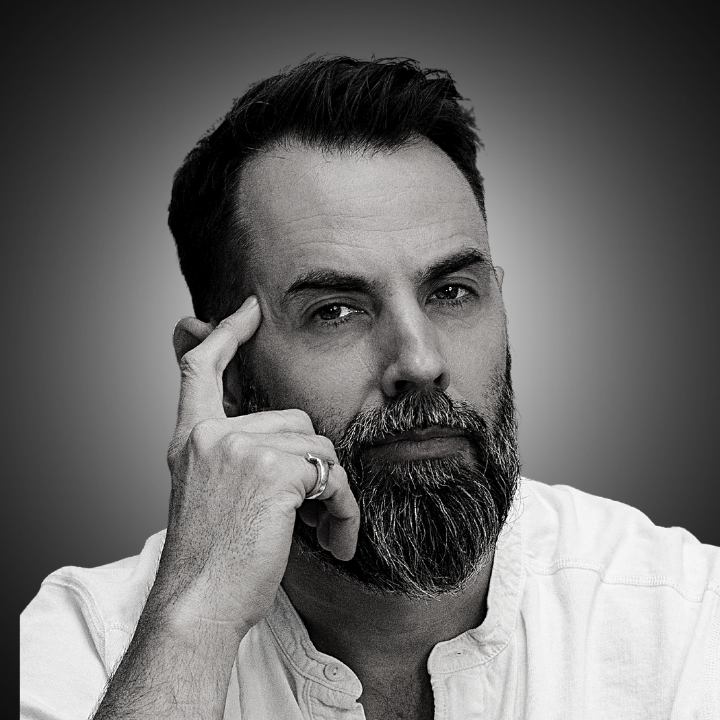Devin Sean Moss is an atheist chaplain and the host of The Adventures of Memento Mori podcast. Soon after our symposium, Phillip Hancock, who Moss spoke about on our stage, was executed by the state of Oklahoma. See Moss’s End Well talk about this experience HERE. You can also read more about the journey in the New York Times: An Atheist Chaplain and a Death Row Inmate’s Final Hours.
We had the pleasure of asking D.S. a few questions in advance of his appearance at the End Well Symposium on November 16th in Los Angeles.
“I don’t think other people consider death a taboo topic. Rather, they don’t know how to start the conversation.”
Q: Death is often considered taboo. Was there a defining moment in your life that ignited your passion to discuss and address end-of-life experiences openly?
There wasn’t a lightning rod moment for me. In fact, I don’t ever remember feeling like it was a taboo topic. And I wouldn’t say I had any “out of the ordinary” exposure to it. One thing that’s always been a part of my personality is a touch of existential angst. So, my lifelong exploration into the meaning of life has always been coupled with mortality in one form or another. I’d also like to add that through my experience hosting The Adventures of Memento Mori podcast, I don’t think other people consider death a taboo topic. Rather, they don’t know how to start the conversation. Once they do, it’s all they want to talk about. But maybe that’s just the people I hang out with.
Q: Given your unique background, how does your work intersect with the end-of-life and grief conversation — and please give us a preview of what you’re talking about on the End Well stage.
We tend to view death in three ways. There’s the “out there” form of death. Out there is news of floods in Syria and wars in Ukraine, statistics on drunk driver fatalities, and generally things at a distance. In this form of death, we have a bit of agency in how much we think about it and to what degree we are affected. Then there is the “somewhere close.” This is the death of a spouse, child, parent, neighbor, friend, or pet. It’s the death of another in close proximity. Of course, this is primarily where grief lives. It is also how most people are introduced to death meaningfully and where our culture spends the most time and resources. As a chaplain, my work definitely resides in this space, but the third way we view death interests me the most. This death is the “here.” It is the “I.” It is MY death. And both culturally and individually, we spend the least time in the ‘my death’ realm. It is in the “here” where my passion lies, and as a storyteller and chaplain, it is where I can provide the most service to others.
“Limitation in our society is seen as a dirty word, and we act as though resources, relationships, and our lives will last in perpetuity.“
Q: In your experience, what is the most significant societal norm or belief about death and dying that needs to be challenged or redefined?
Our belief in the infinite needs to be challenged. When faced and embraced, Finitude is a life-altering and world-changing value system. Limitation in our society is seen as a dirty word, and we act as though resources, relationships, and our lives will last in perpetuity. The rub here is that we know everything is impermanent deep down (or not so deep down). Yet, our behavior demonstrates the opposite. Ernest Becker calls it denial, but I prefer “active avoidance” because significant energy is expended in avoiding the finite order of life.
Q: Is there a book, movie, piece of art, or another form of media that profoundly impacted your views on mortality?
The Good Place. Period. Nuff said. I watched the tv show well into my exploration into mortality, but Michael Schur and the other writers on the show nailed “how death affects life” in a way that should be required watching for every human.
Q: Fast forward a decade. If the objectives of the End Well Project are realized, how do you envision society’s attitude and practices surrounding the end of life experience.
That our behavior changes at scale so we act in alignment with what we know to be true. And that death isn’t something we only talk about in the last paragraph of our life’s book.
D.S. Moss will speak at the End Well Symposium on November 16, 2023.
D.S. Moss is a Humanist (nontheist) Chaplain unwavering in his pursuit to relate stories that connect us to our humanity. A natural explorer, he uses playful inquisition to examine the complexity of the human condition and the intrinsic meaning of life. Moss maintains an interdisciplinary practice of storytelling, street philosophy, and practical altruism. In 2015, Moss created The Adventures of Memento Mori podcast.. The consequence of this deep meditation on impermanence was life-changing. Uncertain of what happens after we die, Moss has dedicated his life to the positive changes that can happen while we’re still alive.
